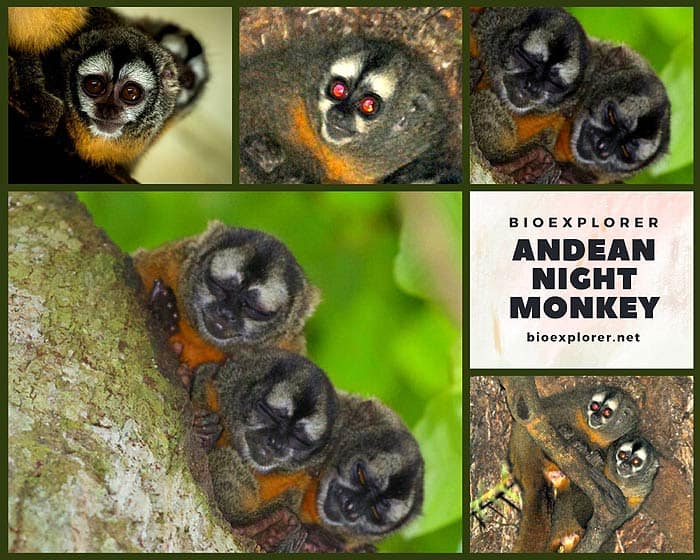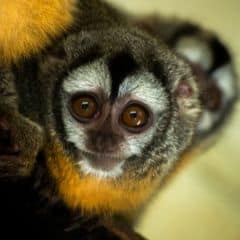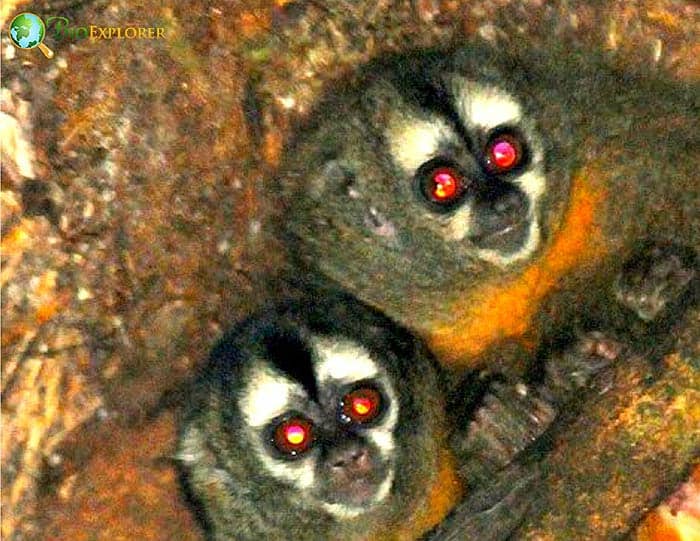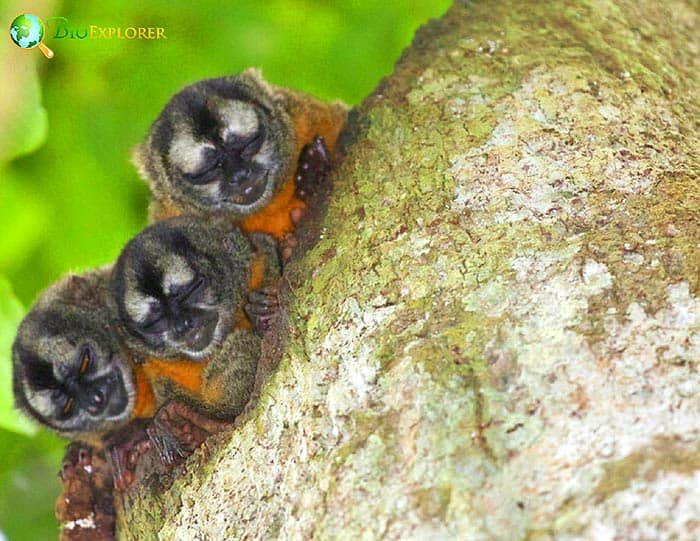Andean Night Monkey

| Kingdom | Order | Family | Genus | Species |
|---|---|---|---|---|
| Animalia | Primates | Aotidae | Aotus | Aotus miconax |


- Common Name: Andean Night Monkey
- Taxonomy Classification Year: 1927
- Monkey Size: 50 to 50 cm (20 to 20 inches)
- Skin Color(s): Gray, Orange
- Habitat: Andean cloud forests, Mountains
- Diet: Frugivorous
- Native Countries: Peru
Andean Night Monkey Distribution
Countries
Peru
Andean Night Monkey Characteristics

Andean night monkeys[1] are a genus Aotus, commonly known as nocturnal monkeys. Species in this genus are the only truly nocturnal monkeys in the world.
- At first glance, you might assume that an Andean night monkey is a prosimian, more at home in the Madagascan tropics than in the cloud forests of the Andes.
- However, the large eyes and small size of this Peruvian night monkey – traits seen in several prosimians – are evolutionary adaptations that allow them to exploit their nocturnal niche without being a primary target for the many nocturnal predators with which they share a common living space.
- ‘Aotus’ means ‘without ears’, which may seem wrong at first glance as its small ears are not immediately visible in the thick fur surrounding its head.
- Their round faces feature a striking black and white pattern framing their large brown eyes.
- Andean night monkeys’ tiny bodies are predominantly grey, with a large rust-orange patch occupying their entire abdomen and inner arms.
- Their long tails help them balance when climbing through the canopy, while the padded, claw-like toes help them grab branches.
Andean Night Monkey Facts

- Andean night monkeys are not sexually dimorphic as males and females look very similar.
- The Peruvian night monkey is monogamous and, like other Aotus species, lives in small family groups of 2-6 individuals.
- The species is one of the lesser-known and possibly the rarest Neotropical primates. This species is classified as Vulnerable by the IUCN and Critically Endangered under Peruvian law[2].
- They use scent glands in their necks and at the base of their tails to mark their surroundings and communicate with other squadmates.
- As their name suggests, Andean night monkeys are nocturnal, with their most active time at the beginning of the night.
Suggested Reading: All Monkey Species
Cite this page
Bio Explorer. (2026, January 6). Andean Night Monkey. https://www.bioexplorer.net/animals/mammals/monkeys/andean-night-monkey/
